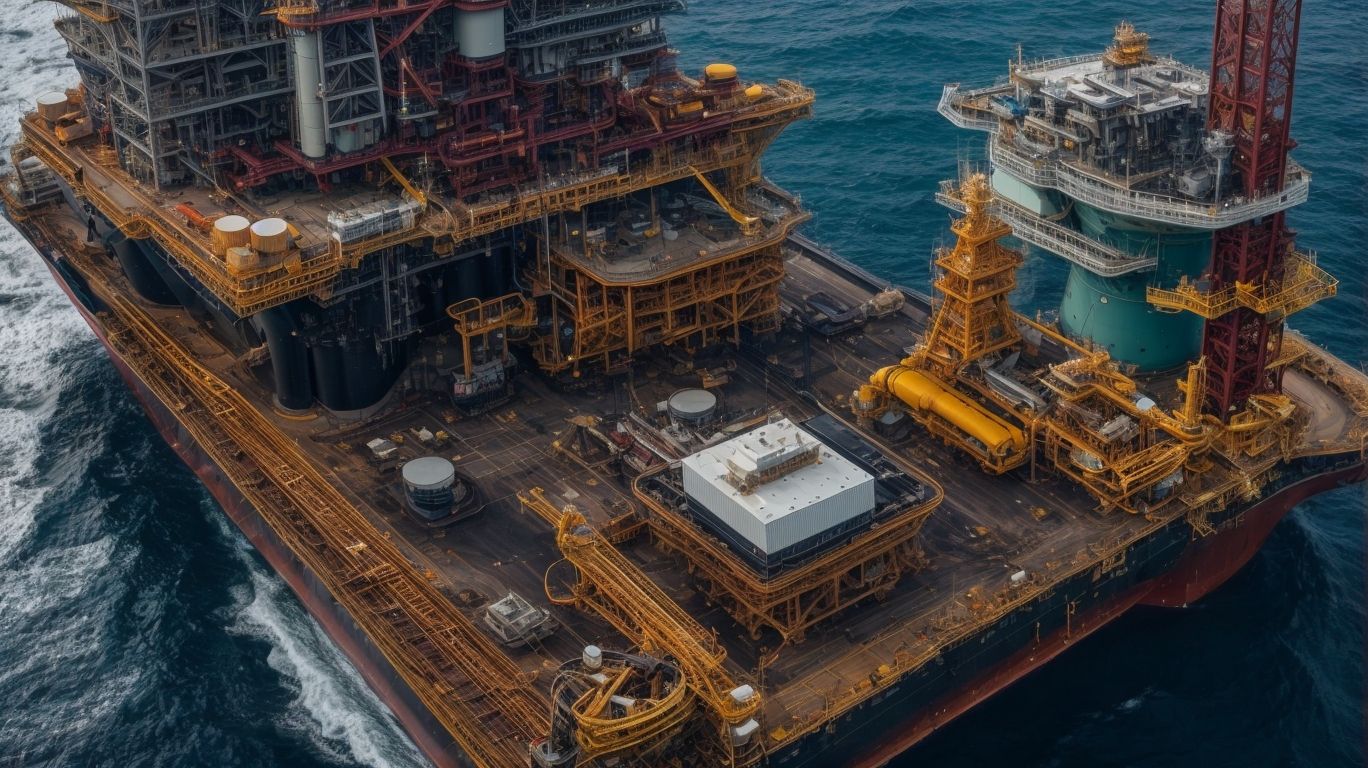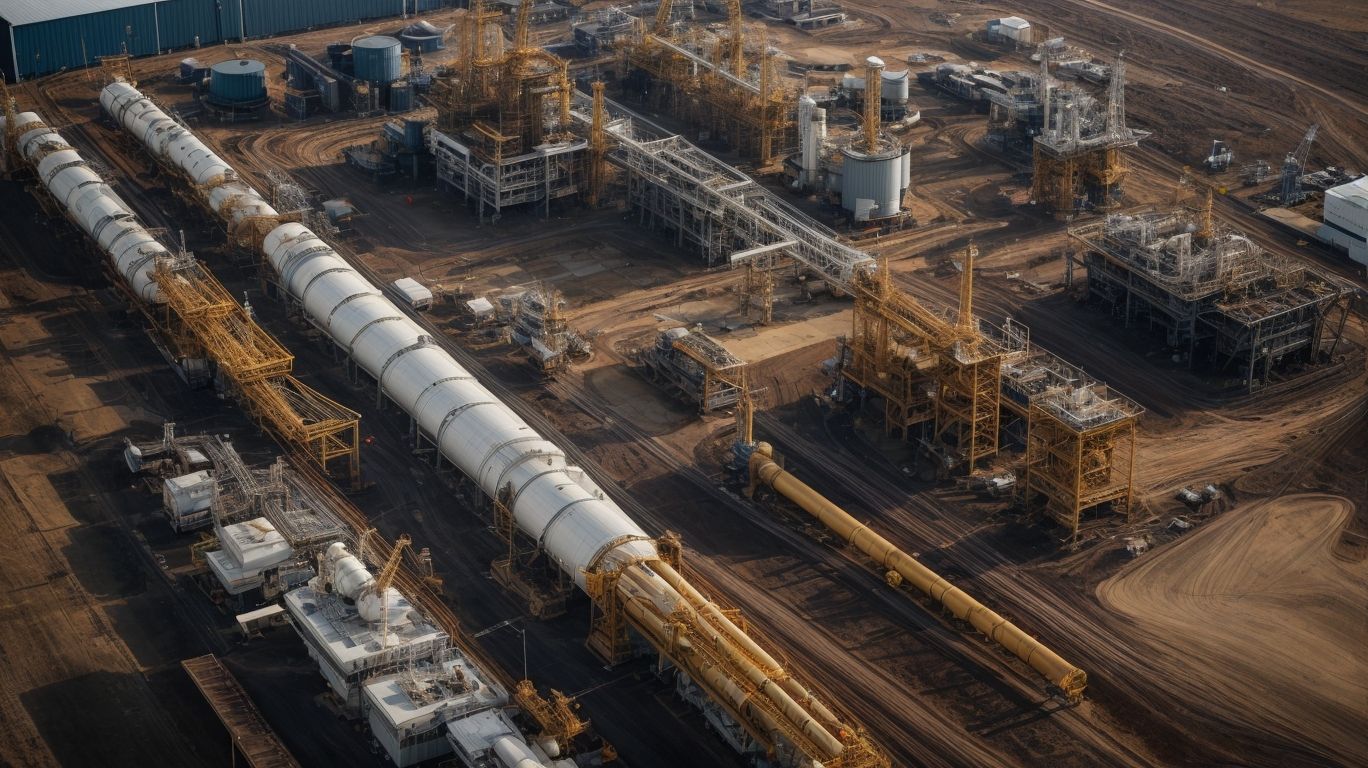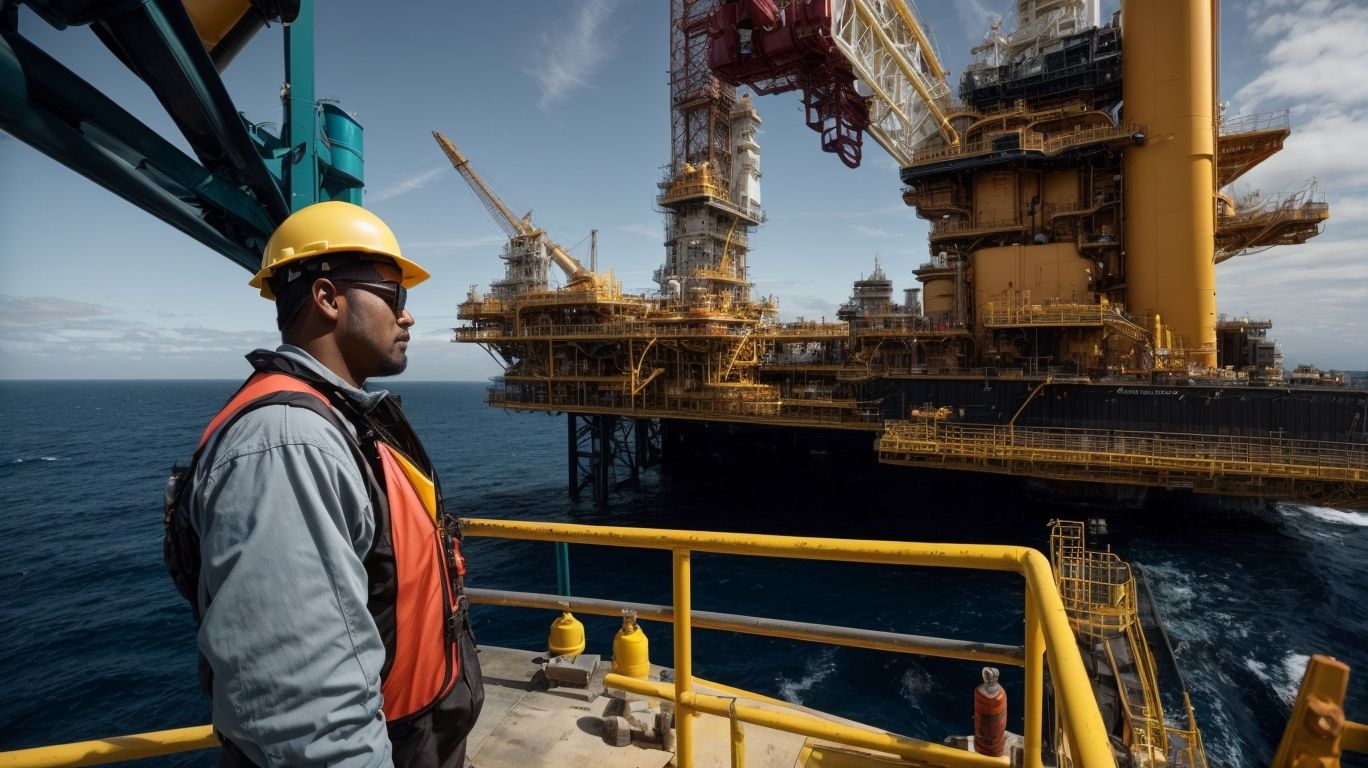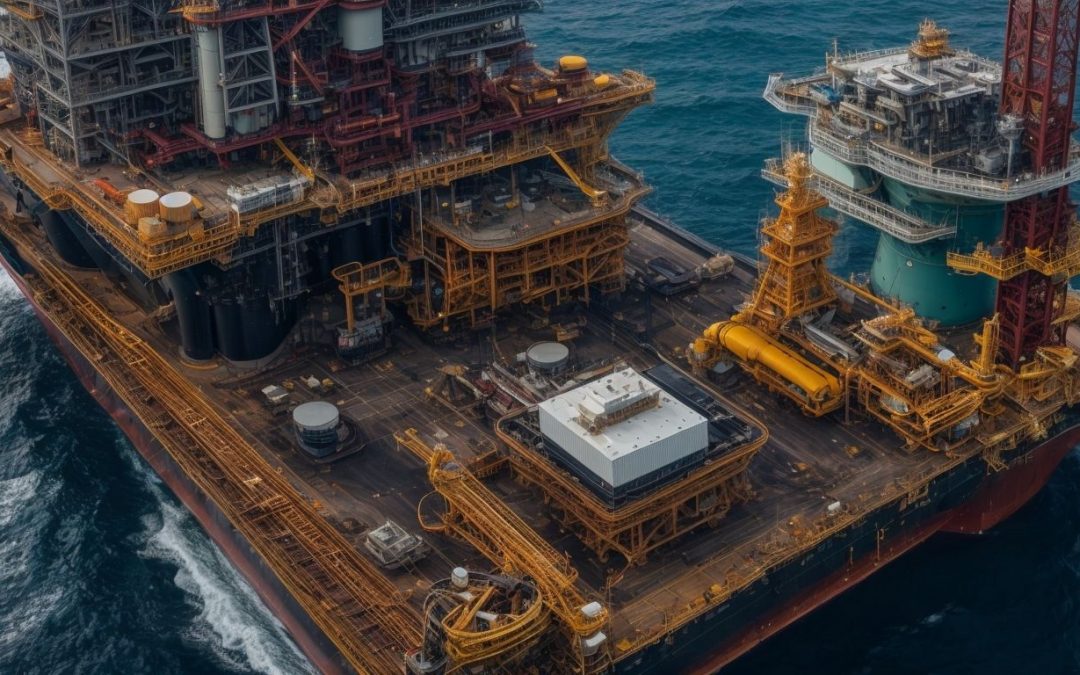Top 10 Tradespersons Jobs in Australia’s Oil and Gas Industry
The Australian Oil and Gas industry is a significant contributor to the country’s economy, with a diverse range of activities including exploration, production, and transportation of oil and gas resources. According to the Australian Petroleum Production and Exploration Association, the industry employs over 80,000 people and contributes over $30 billion to the country’s GDP.
If you are interested in pursuing a career in the Australian Oil and Gas industry, here are the top 10 trade jobs to consider:
- Electricians: Responsible for installing, maintaining, and repairing electrical systems.
- Welders: Skilled in welding and metal fabrication for pipelines, platforms, and other structures.
- Pipefitters: Install and repair pipes for the transportation of oil and gas.
- Boilermakers: Construct and repair boilers, heat exchangers, and other pressure vessels.
- Instrumentation Technicians: Install, maintain, and repair instruments and control systems used in oil and gas production.
- Mechanics: Maintain and repair mechanical equipment, such as pumps, compressors, and engines, used in oil and gas operations.
- Riggers: Responsible for lifting and moving heavy equipment and materials on offshore platforms.
- Scaffolders: Erect and dismantle scaffolding on offshore platforms and other structures.
- Crane Operators: Operate cranes for lifting and moving heavy equipment and materials.
- Insulators: Install insulation materials on equipment and pipelines to maintain temperature and prevent corrosion.
To qualify for these trade jobs, you will typically need a trade certificate or license in your respective field and relevant experience. Specific skills and training may also be required, such as knowledge of electrical systems, welding techniques, or safety protocols.
In these trade jobs, you will have a variety of responsibilities and duties, including installation, maintenance, repair, and operation of equipment. Safety precautions must also be diligently followed to prevent accidents and ensure the safety of yourself and your colleagues.
Breaking it Down Even Further…

1. Electricians
When pursuing a career as an electrician in the Australian oil and gas industry, consider the following:
- Educational Requirements: Obtain a Certificate III in Electrotechnology Electrician or equivalent.
- Work Experience: Gain experience in commercial or industrial electrical work.
- Specialized Training: Acquire expertise in hazardous area electrical installations and maintenance.
Ensure to stay updated with industry-specific regulations and safety standards.
2. Welders
When considering a career as a welder in the Australian Oil and Gas industry, there are several key steps to follow:
- Completion of welding education and training programs.
- Acquire relevant certifications and licenses for welding.
- Gain hands-on experience through internships or apprenticeships.
- Develop proficiency in various welding techniques and equipment operation.
- Stay updated with industry safety standards and regulations.
For those interested in pursuing a career as a welder in the Australian Oil and Gas industry, it’s essential to prioritize continuous learning and skill development to thrive in this dynamic field.
3. Pipefitters
Obtain a trade certificate or licence according to Australian regulations.
Accrue relevant experience in pipefitting or related trades.
Develop specific skills in pipefitting, including blueprint reading and pipe system installation.
Undergo training in safety protocols and regulations for working in the oil and gas industry.
For aspiring pipefitters, gaining hands-on experience through apprenticeships and staying updated with industry advancements can significantly boost career prospects.
4. Boilermakers
Obtain relevant education and training in metal fabrication and welding.
Acquire a boilermaker certification or license, if required in your location.
Gain hands-on experience through apprenticeships or entry-level positions.
Develop skills in blueprint reading, metal cutting, and welding techniques.
Adhere to safety regulations and protocols at all times.
5. Instrumentation Technicians
Calibrate, maintain, and repair instruments and devices used in the oil and gas industry.
Install and troubleshoot equipment such as pressure gauges, transmitters, and control valves.
Collaborate with engineers to ensure accurate and efficient functioning of instrumentation systems.
Adhere to safety protocols and industry regulations while performing maintenance and repairs.
6. Mechanics
Perform regular maintenance and repairs on machinery and equipment.
Diagnose mechanical issues and develop solutions to ensure proper functioning.
Conduct inspections to identify worn or damaged parts and replace them as needed.
Collaborate with other team members to troubleshoot complex problems.
Adhere to safety protocols and guidelines to prevent accidents and injuries.
7. Riggers
Riggers in the Australian Oil and Gas industry perform vital tasks that ensure safety and efficiency. Here are essential steps for becoming a successful rigger:
- Acquire proper certification and licensing as required by Australian regulations.
- Gain on-the-job experience to enhance practical skills and understanding of industry-specific rigging techniques.
- Undergo specialised training to develop expertise in lifting and moving heavy equipment.
- Stay updated on safety protocols and procedures to prevent workplace accidents and ensure compliance with industry standards.
Considering the physical demands and technical nature of rigging, aspiring riggers should prioritise physical fitness and dedication to continual learning.
8. Scaffolders
Understand the job scope, including erecting and dismantling scaffolding and ensuring safety measures.
Obtain necessary qualifications such as a high-risk work license for scaffolding and relevant certifications.
Acquire practical experience through apprenticeships or on-the-job training to enhance skill set.
Adhere to occupational health and safety regulations to maintain a secure work environment.
Stay updated with industry standards and best practices to ensure compliance and proficiency.
9. Crane Operators
Obtain Necessary Qualifications:
Acquire a crane operator certification or license as required by Australian regulations.
Gain Experience:
Typically, crane operators need experience in the construction or heavy equipment operation field.
Develop Essential Skills:
Proficiency in operating and controlling cranes, understanding load charts, and adhering to safety protocols is crucial.
Stay Informed:
Keep updated with industry standards, regulations, and technological advancements related to crane operation.
10. Insulators
Understand the Insulation Requirements: Analyse the project specifications to determine the type and amount of insulation needed.
Prepare the Work Area: Clear the work area and ensure safety measures are in place, such as proper ventilation and access.
Take Measurements and Cut Insulation Materials: Accurately measure and cut insulation materials to fit pipes, equipment, or structures.
Install Insulation: Apply and secure insulation using appropriate fastening methods and materials, ensuring a tight seal.
Inspect and Test: Thoroughly inspect the installed insulation for any gaps, damage, or defects. Perform necessary tests to ensure effectiveness.
Complete Documentation: Maintain accurate records of materials used, installation processes, and any issues encountered.
What are the Qualifications and Requirements for these Trade Jobs?

Photo Credits: Miningresume.Com.Au by Jack Torres
Understanding the qualifications and requirements for trade jobs in the Australian oil and gas industry is essential for aspiring professionals. Each trade job has its specific prerequisites, typically including relevant certifications, practical experience, and a commitment to safety protocols.
For instance, welders may need certification in welding techniques, while electricians require electrical trade qualifications. Additionally, most trade jobs mandate adherence to stringent safety standards and may necessitate physical fitness due to the demanding nature of the work.
When I was pursuing a trade job in the oil and gas industry, I discovered that obtaining a permit to work at heights was a crucial requirement. After undergoing comprehensive training and assessment, I successfully acquired the certification, opening up new opportunities for career advancement and specialization.
What is the Salary and Job Outlook for these Trade Jobs?

The salary and job outlook for trade jobs in the Australian Oil and Gas industry varies based on factors such as experience, location, and specific job role. On average, trade jobs in this industry offer competitive salaries, with experienced workers and those in specialised roles earning higher incomes. The job outlook remains positive, driven by ongoing projects and the need for skilled tradespeople. When considering these trade jobs, it’s essential to research industry-specific salary data and monitor job market trends to make informed career decisions.
What is the Average Salary for Each Trade Job?
The average salary for trade jobs in the Australian Oil and Gas industry varies based on experience and qualifications. Electricians earn around $80,000 to $120,000 per year, while welders make approximately $70,000 to $100,000 annually. Pipefitters and boilermakers receive salaries ranging from $75,000 to $110,000 and $80,000 to $120,000 per year, respectively. These figures may increase with additional expertise and certifications.
What is the Job Growth Projection?
Job growth projection in the Australian Oil and Gas industry is expected to be positive due to ongoing exploration and production activities. With the increasing demand for energy, skilled trade jobs like electricians, welders, and mechanics are likely to experience steady growth.
The need for specialised skills in instrumentation and safety is also anticipated to drive job opportunities in this sector.
What Factors Affect the Salary and Job Outlook?
Several factors influence the salary and job outlook in the Australian oil and gas industry. These include the level of experience, specialized skills, industry demand, and economic conditions. Additionally, technological advancements and the regulatory environment also play a significant role in shaping the job landscape. To enhance job prospects, staying updated with industry trends and pursuing continuous professional development is crucial.

